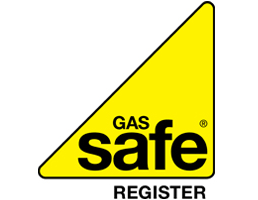Deprecated: Function wp_targeted_link_rel is deprecated since version 6.7.0 with no alternative available. in /var/www/vhosts/ukooa.co.uk/httpdocs/wp-includes/functions.php on line 6121
Deprecated: Function wp_targeted_link_rel_callback is deprecated since version 6.7.0 with no alternative available. in /var/www/vhosts/ukooa.co.uk/httpdocs/wp-includes/functions.php on line 6121
Deprecated: Function wp_targeted_link_rel is deprecated since version 6.7.0 with no alternative available. in /var/www/vhosts/ukooa.co.uk/httpdocs/wp-includes/functions.php on line 6121
Deprecated: Function wp_targeted_link_rel_callback is deprecated since version 6.7.0 with no alternative available. in /var/www/vhosts/ukooa.co.uk/httpdocs/wp-includes/functions.php on line 6121
Deprecated: Function wp_targeted_link_rel is deprecated since version 6.7.0 with no alternative available. in /var/www/vhosts/ukooa.co.uk/httpdocs/wp-includes/functions.php on line 6121
Deprecated: Function wp_targeted_link_rel_callback is deprecated since version 6.7.0 with no alternative available. in /var/www/vhosts/ukooa.co.uk/httpdocs/wp-includes/functions.php on line 6121
How to Reduce Your Water Bills
When you own or rent your own home, the cost of bills can add up quickly, either due to fluctuating use of your amenities or a hike in prices. However, due to our extensive experience in the field of plumbing, we can offer you advice on how to cut your water bills down for good.
How you can reduce your water bills
1. Invest in water-saving appliances
To reduce the cost of your water bills in and around your home, one of the biggest changes you can make is to invest in a water-saving appliance or plumbing system. By replacing your ageing appliances with newer, more eco-friendly ones, you can.
For example, you may want to fit a device in your toilet cistern to reduce the amount of water used to flush. Given that it is estimated that the average household could save around three litres of water every time they flush with this kind of equipment, which is equivalent to over 1,000 litres each year, making these small but important changes will help you save your pennies.
2. Install a water meter
Depending on the number of people in your home, the amount of water you use and what kind of deal you have with your water provider, it may be a good idea to install a water meter in your home. A water meter means that you will only be charged for the water you use each month or week, making it more flexible.
By comparison, those without a water meter will pay water bills via rateable billing, where they pay a set price per year. It differs from household to household, but a professional plumbing company will be able to discuss the benefits of each approach with you.
3. Fix leaks and dripping taps ASAP
Another way to reduce your water bills is to act quickly at the first signs of a leak or a dripping fixture, since the water which leaks through these outlets can quickly add up, increasing your water bill over time.
This is why it is better to reach out to a licensed plumber as soon as you notice damage to either your pipes or faucets, as a repair is often more cost-effective than leaving the problem as it is.
One thing you can do to cut down your spending when it comes to water bills is to optimise the way you use your appliances and make them more efficient. One example of this is only using the washing machine when you have a full enough load to make it worthwhile. The same applies to dishwashers, as turning on a half-loaded dishwasher is wasteful.
It is also a good idea to look at your showering habits and see where you can cut down water waste in this regard. Where possible, you should have a shower rather than a bath, and you should avoid running it for too long before getting into it as this will resort to a lot of water waste.
Additionally, when it comes to washing up, you may want to change your approach. For example, you might want to fill up a washing up bowl with warm soapy water instead of running the tap whilst washing up, thus preventing extra water use.
5. Have regular maintenance checks
Arguably the most effective way to reduce your water bills is to keep on top of your plumbing maintenance. This is something that is best achieved with the support of a licensed plumber and often involves conducting thorough and regular assessments of your plumbing systems. They can identify and repair any plumbing problems before they get worse or leave you out of pocket.


